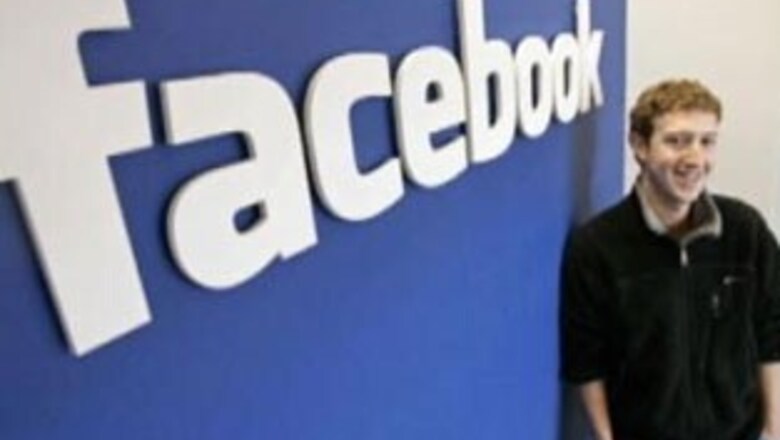
views
San Francisco: For Facebook's employees and early investors, the big payday is coming. But it will not follow the standard Silicon Valley script.
Instead of cashing out via the hoopla of an initial public offering – which CEO Mark Zuckerberg has said was a few years out – equity holders in the social networking website get to sell their shares to a Russian investment firm.
The move marks a new trend among start-ups to raise funds by selling shares in private placements instead of going public at time when demand for IPOs is very weak.
The impending deal – due to be unveiled in the next month or so – will provide an important benchmark for investors sizing up the value of one of the world's fastest-growing and most closely watched Internet companies.
"It's an interesting indicator," said Managing Director at SecondMarket, which provides a marketplace for trading in private shares and other illiquid assets, Adam Oliveri.
If the world's largest online social network, with more than 200 million active users, eventually decides to float shares to the public, the price that its common stock has previously traded will be a benchmark, Oliveri added.
Facebook, which increasingly competes with online giants like Google Inc and Yahoo Inc for the attention of Web surfers and advertisers, has attracted interest from investors keen to get a piece of the action.
In 2007, Microsoft Corp invested $240 million in Facebook preferred shares, snagging a 1.6 percent stake.
Russia's Digital Sky Technologies said in May it would buy "at least $100 million" of Facebook common stock to let current and former employees unlock money tied up in company equity.
The deal comes on top of $200 million in funding that Digital Sky pumped into Facebook in May, putting a $10 billion valuation on Facebook's preferred shares.
The value of Facebook's common shares, as well other key aspects of the stock-purchase plan such as timing and eligibility, remain unknown.
In an April filing with the California Department of Corporations, Facebook listed the fair market value of its nearly 7.9 million common stock at $5.27 a share, or about $4.2 billion. But that value was established prior to the DST deal.
The Wall Street Journal has cited a $6.5 billion valuation for Facebook common shares in the DST deal. That translates to $14.50 a share, according to Oliveri's calculations.
Oliveri said his own conversations with contacts suggest the price for Facebook stock in the DST deal has not been fixed. But quotes from interested buyers and sellers of Facebook common stock on the secondary market lie between $10 and $10.50 a share, valuing it at up to $4.7 billion.
PAGE_BREAK
New Trend
"Five years ago it would be frowned upon to have the whole company trying to sell shares," said Industry Ventures founder Hans Swildens, whose firm helps arrange private stock sales for budding tech companies.
He said Facebook's program underscores a trend that may grow among start-ups as venture capital dries up and the recession saps liquidity and demand for big-time IPOs.
Firms like SecondMarket, Saints and Industry Ventures involved in the purchasing of private company shares say they are increasingly working directly with companies to craft programs that function like a company-sponsored benefit plan for employees hoping to sell their shares.
The terms of the deals vary, with pricing for shares sometimes based on anything from an exchange-like bid-and-offer system to scrutiny of appraisals under tax codes.
"It's opaque. They're not saying anything," said one Facebook shareholder who hopes to sell shares.
Facebook and Digital Sky promised in May to provide details of the plan to eligible participants during the summer. Spokesman Larry Yu said the terms of that deal call for share sales to occur within a time window, but he added that Facebook has no plans to provide a public update about the program. A representative for the DST did not return calls for comment.
Facebook attempted to create a program for employees to sell shares to an unidentified investor in 2008, but the plan was put on hold as markets tanked. The initial plan limited the amount of shares an employee could sell to 20 per cent of his or her holdings, or $700,000, whichever was less, according to a former Facebook employee.
"I've been approached hundreds of times from all kinds of investors wanting to buy my shares,” said a former Facebook employee, noting that he believes there is greater long-term value in holding his shares.



















Comments
0 comment